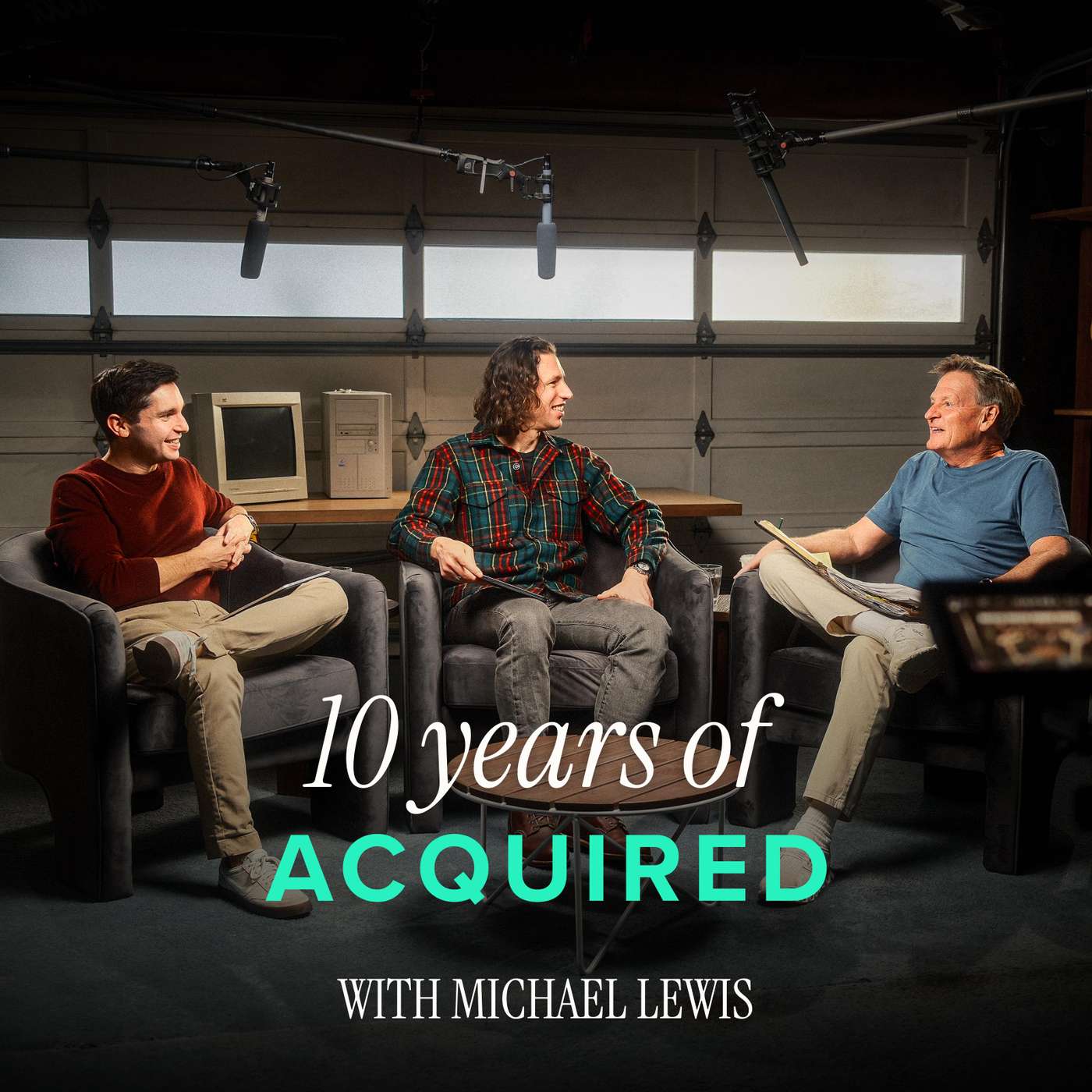Today's Top Episodes
Viewing Podcast: Podcast
AI
Arts
Business
Crypto
Finance
Health
History
Interviews
Investing
Macro
Misc
News
Politics
Product
Programming
Science
Social
Startups
Technology
VC

Russian Soul, American Life: A Conversation with Ignat Solzhenitsyn | Peter Robinson | Hoover Institution
Duration: 01:04:08
December 16, 2025
- Ignat Solzhenitsyn discusses his unique upbringing in exile, focusing on his family's effort to maintain Russian culture and heritage while integrating into American public life.
- He shares the story of his accidental entry into music, spurred by a chance encounter with Mstislav Rostropovich and the presence of a piano in his Vermont home.
- Solzhenitsyn reflects on the complex relationship between Russia and the West, the persistent challenges in Russian history, and the enduring question of how immense artistic flowering can coexist with political struggles.

Why the Cold War Still Matters with John Lewis Gaddis | Peter Robinson | Hoover Institution
Duration: 01:07:49
November 19, 2025
- The enduring relevance of historical study: The conversation emphasizes that even seemingly distant historical events like the Peloponnesian War or the Cold War offer recurring dilemmas and lessons applicable to contemporary challenges, highlighting the importance of a broad historical perspective for students.
- The evolution and complexity of American grand strategy: The discussion traces the development of American foreign policy from the Cold War's containment strategy, through the Nixon-Kissinger era of détente, to contemporary debates about the promotion of democracy versus stability, illustrating how strategy must align aspirations with capabilities.
- The impact of geography and individual agency on history: The interview touches on how geographic factors can shape a nation's ability to develop democracy, and conversely, how key individuals like George Kennan and Ronald Reagan, acting either with foresight or perhaps by accident, significantly influenced the course of global events.

Thomas Sowell: A Free Man | Peter Robinson | Hoover Institution
Duration: 01:05:19
October 21, 2025
- Early life and subjective poverty: Thomas Sowell's early life in North Carolina, despite humble surroundings, was characterized by familial love and support, suggesting that poverty is not solely an objective measure but includes subjective feelings of well-being and belonging.
- Formation of intellectual independence and empiricism: Sowell's journey, from childhood in Harlem to his academic career, highlights his development as an independent thinker, often questioning prevailing narratives and prioritizing empirical evidence over ideological adherence, as seen in his early engagement with Marxism and subsequent shift.
- Emphasis on self-reliance and academic standards: Sowell's life story demonstrates a consistent commitment to self-development and rigorous standards, whether in his personal pursuits or his educational philosophy, often leading him to clash with systems that prioritized conformity or lowered expectations.

Niall Ferguson, Victor Davis Hanson, and Stephen Kotkin: Three Historians Debate the Era of Trump
Duration: 01:19:33
October 14, 2025
- Historians debated Donald Trump's consequentiality, with some viewing him as a transformative figure who fundamentally altered American politics and the international order, while others found it too early to assess his legacy.
- The discussion highlighted Donald Trump's disruptive approach to foreign policy, often characterized by transactional alliances and a focus on perceived "free riders," drawing comparisons to Richard Nixon's strategies.
- A significant portion of the conversation addressed the perceived decline of American universities, criticizing their leadership, politicization, and declining academic standards, with debate over whether Trump's pressure was a necessary catalyst for reform.

From Havana to Yale: Carlos Eire on Cuba, Becoming an American—and Miracles | Peter Robinson | Uncommon Knowledge
Duration: 01:04:47
September 29, 2025
- Professor Eire's experience as a Cuban exile profoundly shaped his identity, highlighting the internal conflict between embracing American culture and retaining his Cuban heritage.
- Eire's academic work, particularly his book They Flew, challenges materialist perspectives by exploring historical accounts of seemingly impossible religious phenomena like levitation and bilocation.
- The discussion touches on US-Cuba relations, with Eire arguing against lifting the embargo and emphasizing the Cuban regime's inherent animosity towards the United States.

The Age of Depopulation With Nicholas Eberstadt | Peter Robinson | Uncommon Knowledge
Duration: 00:55:15
September 12, 2025
- The world is marching towards below-replacement fertility, a trend unlike past population declines caused by calamities, and potentially already reached the threshold.
- East Asia and Europe are already experiencing net mortality, with birth rates significantly lower than needed for population stability, while Sub-Saharan Africa remains a major exception.
- While the US remains exceptional among developed countries due to higher birth levels and immigration, it has also dropped below replacement, highlighting the need to address both education and the deeper question of changing desires and values impacting fertility.

From Pearl Harbor to Hiroshima: Two Historians on How America Fought and Won The Pacific in WWII | Peter Robinson | Uncommon Knowledge
Duration: 01:25:45
August 15, 2025
- The Japanese launched a broad and remarkably effective offensive across the Western Pacific, strategically aimed at securing access to vital oil fields and protecting their flank.
- The attack on Pearl Harbor dramatically unified a previously divided American public and galvanized the nation for war, effectively ending the powerful isolationist movement.
- Though controversial, historical context indicates utilizing the atomic bombs on Japan to end World War II was not necessarily a premeditated decision, but rather a step by step approach born out of the desperation in ending the war and saving American lives as quickly as possible; however, top military leaders later privately regretted the use of the atomic weapons.

The Light Withdrawn: Christopher Cox On How Woodrow Wilson Shaped—And Undermined—American Democracy | Uncommon Knowledge | Peter Robinson | Hoover Institution
Duration: 55:16:00
August 1, 2025
- Wilson's views on race and gender, especially his opposition to women's suffrage and segregationist policies, have been largely omitted from standard biographies.
- Wilson's regressive racial policies, including segregating the federal government and his favorable view of the KKK, represent not just the social norms of the time, as he reversed progress made by previous administrations.
- Despite Wilson's progressive achievements, it's difficult to fully assess his presidency due to his significant moral failures, specifically concerning human rights and racial equality.

Inflation Is A Choice: Kevin Warsh on Fixing the Federal Reserve | Uncommon Knowledge | Peter Robinson | Hoover Institution
Duration: 01:01:47
July 8, 2025
- Walsh criticizes the Fed for institutional drift and failing to maintain price stability, leading to increased federal spending and underperformance.
- Inflation is a choice of the Fed, and the recent trend of blaming external factors like Putin or the pandemic is a departure from the understanding that inflation is a monetary phenomenon.
- Despite criticisms, the US economy is poised for a productivity boom, and the US remains the best place for capital investment if it restores sound economic policies and the Fed achieves price stability.

Justice Alito: Dobbs, A Color Blind Constitution, And The Balancing Of Power | Uncommon Knowledge | Peter Robinson | Hoover Institution
Duration: 01:04:09
June 17, 2025
- Justice Alito discusses the rise of originalism as a constitutional theory, viewing it as a restoration of traditional legal interpretation that emphasizes the Constitution's original meaning.
- The conversation explores the Supreme Court's approach to stare decisis, highlighting the criteria used to determine when to overturn precedent, including whether a decision was "egregiously wrong."
- Justice Alito asserts his belief in a "colorblind" Constitution, expressing disagreement with past affirmative action cases and anticipating continued legal challenges to enforce this principle.



